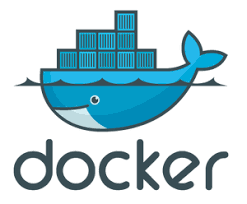Docker cheat sheet

What is Docker?
Docker is a tool used to deploy software across different platform without running into compatibility issues.
A Docker image is a lightweight, standalone, executable package of software that includes everything needed to run an application (code, libraries, settings, etc…). On a Linux system, Docker images are stored in /var/lib/docker.
A running instance of an image is called a container. A container is a standard unit of software that packages up code and all its dependencies so the application runs quickly and reliably from one computing environment to another.
Cheat sheet
You can download a printable Linux command line cheat sheet here from Cheatography.
Another handy cheat sheet can be found here.
- Check Docker installation
docker version
docker run hello-world
- List docker images
docker images
- List dangling Docker images
docker images -f dangling=true
- Remove dangling images and build caches, all stopped containers and all networks not used by at least 1 container (useful to free some space).
docker system prune
- Remove docker image by ID
docker rmi -f IMAGE_ID
- Download a Docker image
docker pull IMAGE_NAME
- List running containers
docker ps
docker container ls
- List all containers
docker ps -a
- Stop a container
docker stop CONTAINER_ID
- Remove a container
docker rm CONTAINER_ID
- Run a docker image
docker run -it --rm IMAGE_ID
- Options of the run command:
-u $(id -u):$(id -g) # assign a user and a group ID
--gpus all # allow GPU support
-it # run an interactive container inside a terminal
--rm # automatically remove the container after exiting
--name my_container # give it a friendly name
-v ~/docker_ws:/notebooks # share a directory between the host and the container
-p 8888:8888 # define port 8888 to connect to the container (for Jupyter notebooks)
- Open a new terminal in a running container
docker exec -it CONTAINER_ID bash
Create a new Docker image
There are 2 main methods.
Method 1 : Using Dockerfile
- Create a file called Dockerfile from your host machine.
vim Dockerfile
# getting base Ubuntu image
FROM ubuntu
# file author / maintainer
LABEL maintainer=<your_email_address>;
# update the repository sources list
RUN apt-get update
# print Hello World
CMD ["echo", "Hello World"]
- Build the image.
docker build -t myimage:0.1 .
- Run the image.
docker run myimage:0.1
Method 2 : Commit a Docker image from a running container
Modify a running container and run this in another terminal.
docker commit CONTAINER_ID my_new_image


Leave a comment